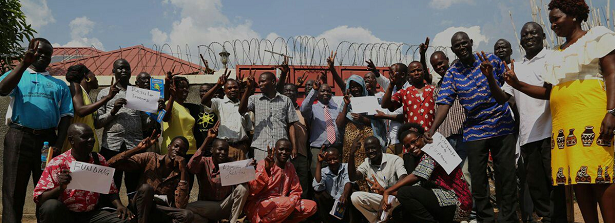Mapping of social entrepreneurs in food value chains within their supporting ecosystems

On a global scale, more and more people are making the decision to become social entrepreneurs in business while aiming for impact in food security. Those entrepreneurs are trying to fill gaps that the private sector, public sector, and civil society actors have left open; issues that need improvement when tackling food insecurity and malnutrition. To gain more insight into their potential contributions, within the F&BKP, social entrepreneurs that work in food value chains in the seven Dutch partner countries (Kenya, Ethiopia, Bangladesh, South Sudan, Indonesia, Ghana and Benin) and their related challenges and opportunities have been mapped within their supporting and surrounding ecosystems.
The report that synthesises the mapping results has revealed that resource, awareness, and knowledge gaps exist between the social entrepreneurs’ demand for support and the supply of support to them. Also, alignment with the surrounding ecosystems in the seven countries leaves opportunities open for improvement. The study provides unique insights and recommendations for social entrepreneurs and the organizations that support them. These findings can be used to bridge existing gaps and increase the impact of social entrepreneurship for food security.
More than 250 social entrepreneurs mapped
The mapping project was conducted by SocietyWorks in close collaboration with seven local project teams, the so called “Linking Pins”, that are directly linked to social entrepreneurs and their local support organizations. The results were analyzed by Evert-jan Quak and designed by Bas Oosterwal. More than 250 social entrepreneurs working in various parts of food value chains have been mapped in an online Ushahidi tool. Of these entrepreneurs that are working on food security in the seven countries, 150 of them have shared even more insights through online and telephone surveys. Additionally, in each country the Linking Pins organized focus group discussions with a number of social entrepreneurs and representatives of their support organizations. They shared a lot of information on who is supporting them, how this support meets their biggest challenges, and what their main threats and opportunities are in the wider context.
Main project conclusions
Some important conclusions from the project are:
- If the social entrepreneurs realize that they are part of a bigger movement, they might be willing to share more information due to the greater good. Therefore, self-organization and coaching of social entrepreneurs in groups is important.
- Support organizations recognize many opportunities for social entrepreneurship in food value chains. However, they admit that they are less connected with the rural areas and need to understand their own specific challenges of reaching and delivering support to social enterprises working in rural areas or with rural stakeholders.
- Within the wider ecosystem, Communities of Practice are needed, along with dialogue between public and private stakeholders and social entrepreneurs to improve coordination and cohesion. Embassies and international aid agencies could increase awareness on social entrepreneurship in the food value chain, paired with efforts to establish or improve networks. Private sector actors could partner or cooperate with social entrepreneurs to implement and scale up inclusive business models.
Unique mapping process
The uniqueness of this mapping project is for a large part due to the collection of a diverse group of social entrepreneurs in the food value chain through a bottom-up approach, that also strengthened their community spirit. An analysis of from whom and how they receive their support was additionally valuable in its design. Also the conversations that took place during the focus group discussions between the social entrepreneurs and their support organizations revealed important insights. The project showed that the added value of support for the social enterprises is not related to the distinguished kinds of support the entrepreneurs are seeking. Yet it does relate to the recognition as a group of entrepreneurs that deal with far more complex challenges and those that take more risks than others. Social entrepreneurs indicated that this acknowledgement requires special expectation levels from support organizations towards the social enterprises in the food value chain.
Follow-up
To forward the information and knowledge exchanges between social entrepreneurs, support organizations, and other stakeholders (e.g. Dutch Embassies and larger private enterprises), SocietyWorks is working on a follow-up trajectory based on the recommendations, insights and conclusions from this mapping report. It will aim at giving the Linking Pins and stakeholders the best possible starting position to succeed in their efforts to find partners and financiers to independently continue a dialogue, a Community of Practice, information and knowledge exchanges and implementing practices.
Background information
Follow this link to the F&BKP preceding literature review on social entrepreneurs as change makers for food security.
Please find below links to presentations of the country findings, drafted by the Linking Pins:
Follow this link to read the blog (in French) on the mapping analysis report by Louis Agbokou, entitled “Cartographie des entrepreneurs sociaux au Bénin: Le rapport final est disponible”.
For questions, suggestions or interest to join the follow up of the project, please contact Knowledge Broker Vanessa Nigten at .







Our company is working on social enterprenership in Ethiopia interms of media published magazine namely Temsalet focused on social, culture and health care issues and also promoting youth entrepreneurs in Ethiopia and Africa partnering with Africa, Europe, USA and Canada. We are also working on Business Agents in Agro industry partnership with Argentina.
Nutridense agro processing PLC is a private company established in Ethiopia with the objectives of producing and supplying healthy and nutritious food products,
Nutridense strives to apply new knowledge in the Ethiopian context; creating new products and business relationship to make a product economically affordable and available to be consumed by a significant number of people. The company will work closely with small farmers having a partnership agreement who will be the suppliers of raw materials for the company.
Charity Uganda is an organization operating in four districts (Jinja, Iganga, Namutumba and Bugiri) in Eastern Uganda with a vision “for an empowered sustainable health living community”
Food For Sustainability (#food4sustainability) is one of our major programs.
under this program of food for sustainability we have a network of 500 potential farmers that we support through farming and business skilling, market survey, viable seeds provisions, networking with others and integration with other programs we offer such as Environmental Conservation, Health for all, Economic Empowerment and Spiritual outreach /Evangelism.
we henceforth wish to be part of ses4food in order to achieve a sustainable food security globally. We shall be proud and honored to be part of this movement and livelihood impacting campaign.